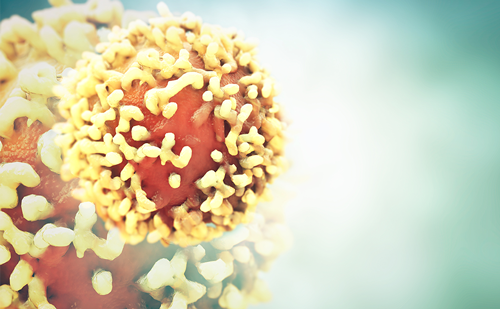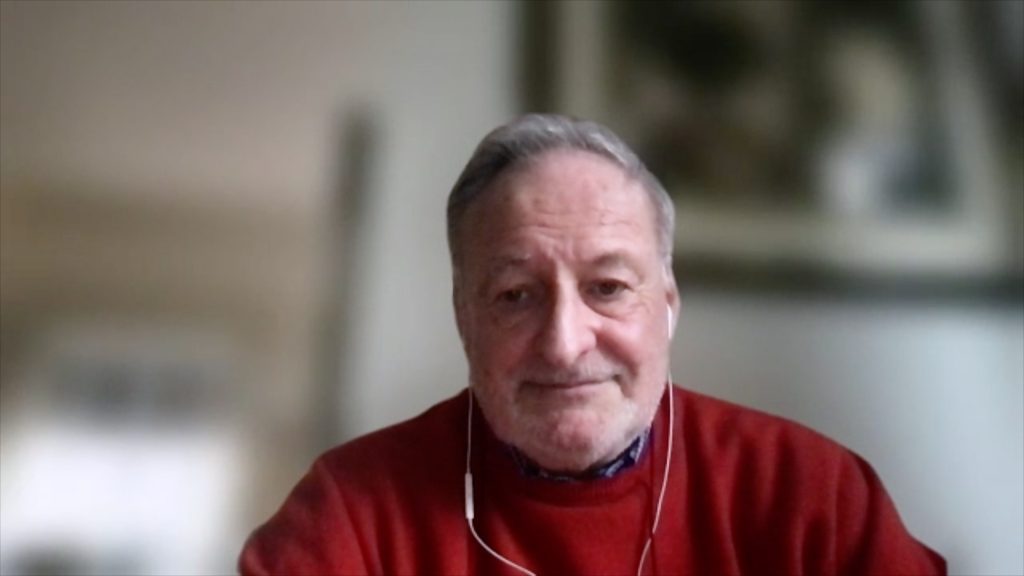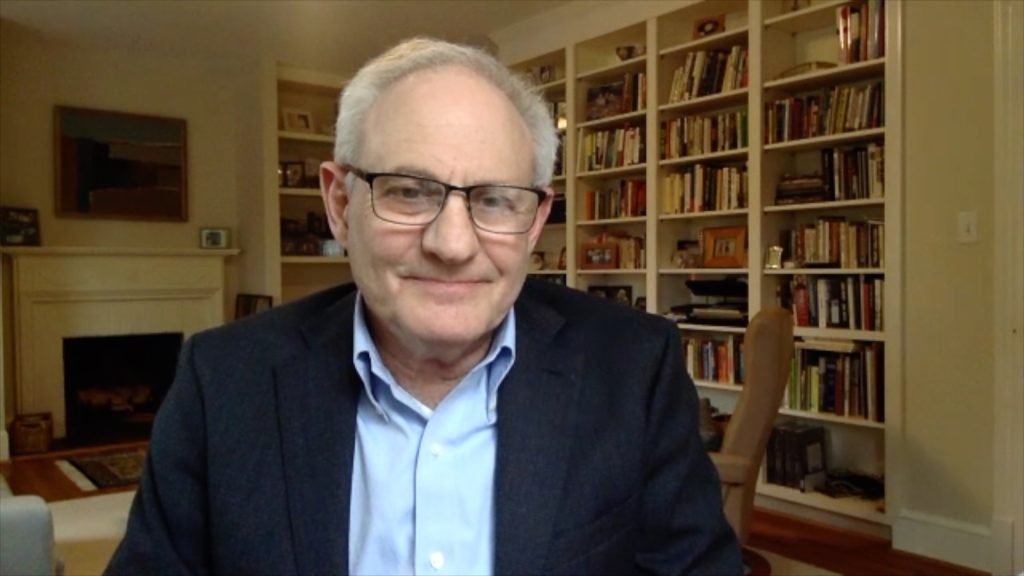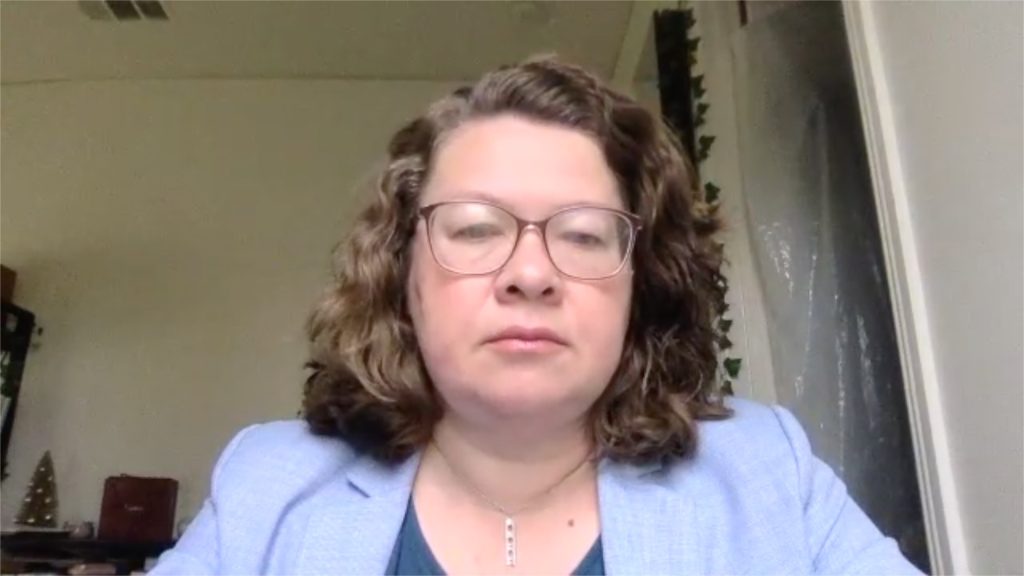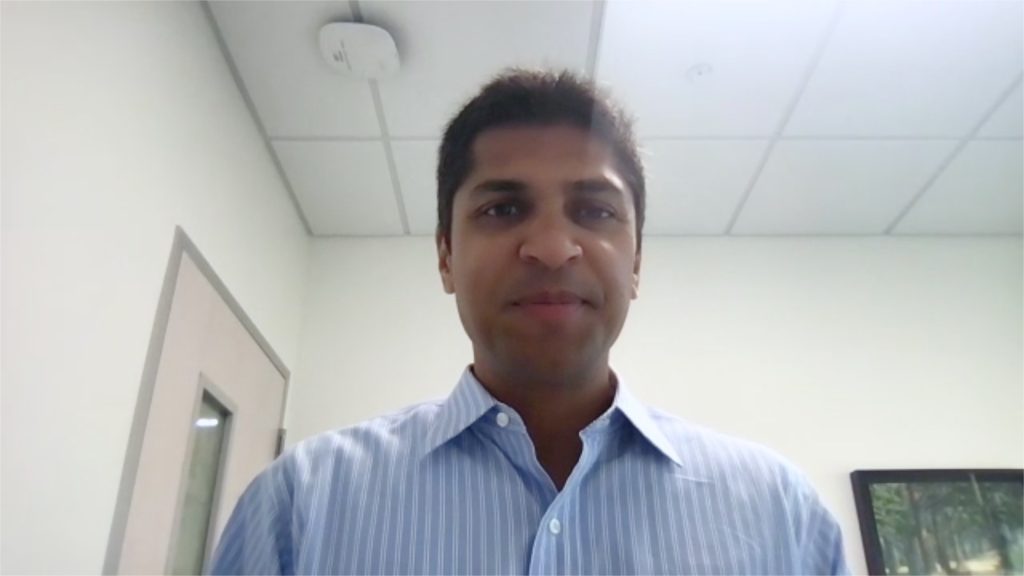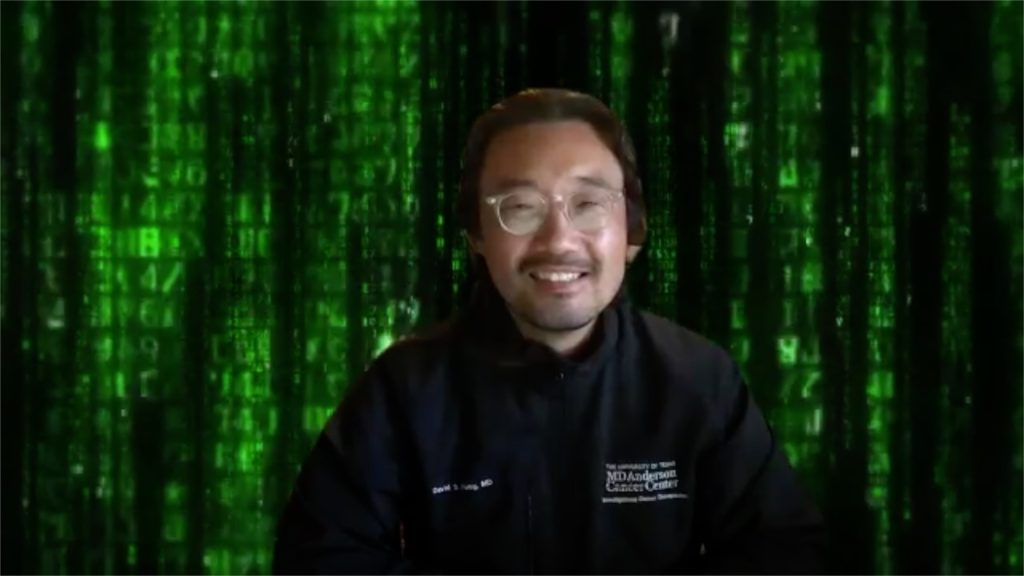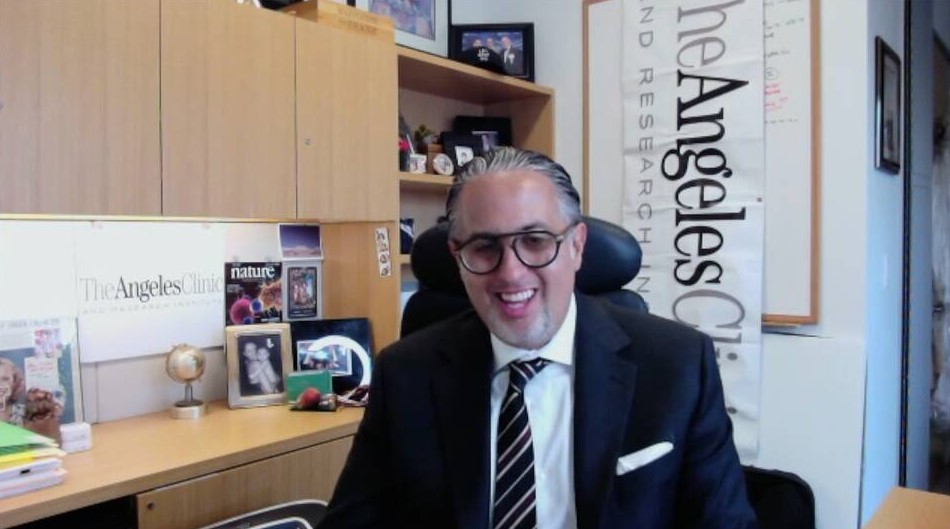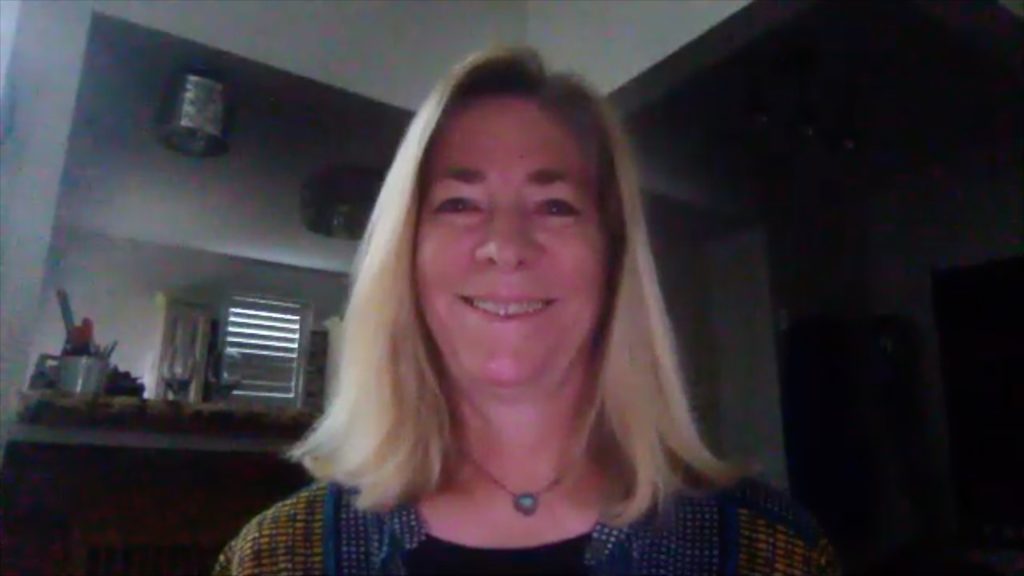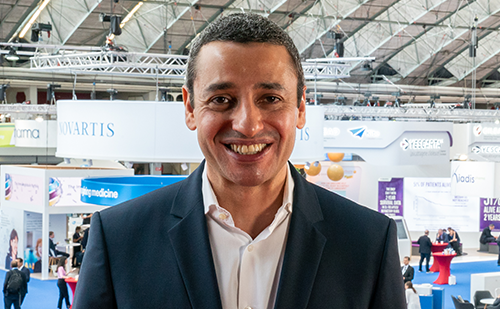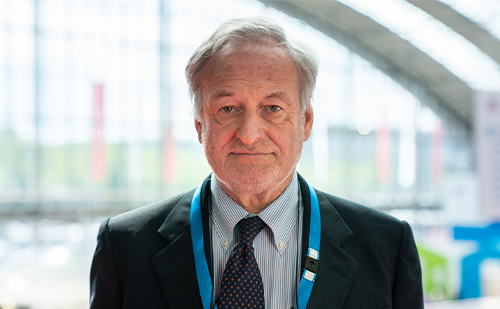Diffuse large B-cell lymphoma (DLBCL) is the most common lymphoid malignancy, and accounts for 30–40% of all cases of non-Hodgkin’s lymphoma.1 Various subtypes of DLBCL have been recognised by the World Health Organization (WHO), including primary mediastinal large B-cell lymphoma, which has distinct clinical, pathologic and genetic features.2 The current first-line treatment option for DLBCL is the R-CHOP regiment, which comprises rituximab plus chemotherapy (cyclophosphamide, doxorubicin, vincristine and prednisone), and is curative in around 50% of cases.3 However, a substantial proportion of patients are refractory to treatment, or experience short-term relapses impairing their possibility of survival. Salvage chemotherapy followed by autologous stem cell transplantation is beneficial in some patients.4 However, in patients who fail to respond to primary treatment, outcomes are extremely poor. 5 This represents a substantial unmet need and highlights the need for new treatment approaches.
The immune system recognises cancer cells by activating T-lymphocytes that use T-cell receptors to recognize tumour peptides presented on major histocompatibility complexes (MHC). This results in the release of T cells and cytotoxic granules, destroying tumour cells. However, tumours can evade the immune system by increasing the expression of immune checkpoints that limit T-cell activation. CD19 chimeric antigen receptor (CAR) T cell therapy is an exciting new approach designed to enhance the T-cell response. This personalised therapeutic approach entails the removal of peripheral-blood T cells from the patient via leukapheresis, followed by in vitro activation, genetic modification, expansion and then reinfusion of the modified cells into the patient.6 The resulting CAR T cells comprise a monoclonal antibody bound to the activation domain of T cells, giving potent cytotoxicity against tumour-specific antigens, and target tumour cells without involvement of the MHC.7
Axicabtagene ciloleucel (Yescarta®; Kite, a Gilead company, Foster City, CA, US) is an autologous anti-CD19 CAR T-cell therapy that has proven safe and effective in patients with advanced CD19+ B-cell malignancies.8,9 The ZUMA-1 study (ClinicalTrials.gov Identifier: NCT02348216)10 is a phase II study involving 111 patients with DLBCL, primary mediastinal large B-cell lymphoma, or transformed follicular lymphoma who had refractory disease despite prior therapy. These are considered to be challenging patients who generally fail to respond to subsequent therapies. All patients were given a target dose of 2×106 CAR T-cells per kg of body weight after receiving a conditioning regimen of low-dose cyclophosphamide and fludarabine. At a median follow-up of 15.4 months, the objective response rate was 82%.11 As a result of these findings, in October 2017 axicabtagene ciloleucel became the first CAR T-cell therapy to receive US Food and Drug Administration (FDA) approval. The label indication is for the treatment of adult patients with certain types of large B-cell lymphoma who have not responded to or who have relapsed after at least two other kinds of treatment.12 The launch of Yescarta received a huge amount of media attention and was hailed as a paradigm-changing breakthrough in oncology, but some experts expressed doubts over its long-term safety and efficacy.13
Two-year efficacy and safety data from ZUMA-1 was presented at the American Society of Hematology Annual Meeting, which was held on the 7–10 December 2018 in San Diego, California, and simultaneously published in the Lancet Oncology.14 At the cut-off date of 11 August 2018, 101 patients in the phase II part of the study were assessed after a median 27.1 months. An objective response was seen in most patients (83%), and 58% had a complete response. The median duration of response was 11.1 months and the median overall survival was not reached. The median progression-free survival was 5.9 months (95% confidence interval [CI] 3.3–15.0). Serious adverse events (AEs) of grade 3 or higher were reported in 48% of 108 patients from the phase I and II studies. This include grade 3 or higher cytokine release syndrome in 11% of patients, and grade 3 or higher neurological events in 32%. Since the previous 1-year safety analysis, four patients developed additional serious AEs (grade 3 mental status changes, grade 4 myelodysplastic syndrome, grade 3 lung infection, and two episodes of grade 3 bacteraemia), but none were considered to be treatment related. Two treatment-related deaths (haemophagocytic lymphohistiocytosis and cardiac arrest) had been reported in the first year, but no new treatment-related deaths occurred during the additional follow-up.
Lead investigator Sattva S Neelapu, MD, of the University of Texas MD Anderson Cancer Center commented: “With aggressive cancers such as refractory large B-cell lymphoma, our primary goal is to extend the lives of patients. Outcomes with traditional standard of care for this highly refractory patient population have been extremely poor. Nearly 40 percent of patients in ZUMA-1 remain in response and half of the patients are still alive after at least 2 years of treatment with Yescarta.”15 The next step in the clinical development of Yescarta is a ZUMA-7 (ClinicalTrials.gov Identifier: NCT03391466),16 a phase III study that aims to investigate the effectiveness of axicabtagene ciloleucel as a second-line treatment for patients with relapsed or refractory DLBCL who failed prior chemotherapy.17
There is a need for further follow up to address long-term efficacy and safety concerns. It is, however, important to be aware of the potential for possible side effects such as cytokine release syndrome and neurological events such as CAR T cell-related encephalopathy syndrome. Patients frequently require admission to intensive care units, and management from multispecialty medical teams. Unsurprisingly, CAR T-cell therapy carries a hefty price tag. It will therefore be important to be able to select which patients are most likely to respond to treatment. Nevertheless, the latest data from ZUMA-1 are highly promising. There are currently over 400 ongoing clinical trials of CAR T-cell therapy in haematological malignancies and solid tumours. This exciting and radical approach to cancer treatment offers a substantial improvement in outcomes for people who have exhausted conventional treatment options.
References
1. SEER. SEER Cancer Statistics Review (CSR) 1975–2015, updated September 10, 2018. Available at: https://seer.cancer.gov/csr/1975_2015/ (accessed 14 January 2019).
2. Savage KJ. Primary mediastinal large B-cell lymphoma. Oncologist. 2006;11:488–95.
3. Gao G, Liang X, Jiang J, et al. A systematic review and meta-analysis of immunochemotherapy with rituximab for B-cell non-Hodgkin’s lymphoma. Acta Oncol. 2010;49:3–12.
4. Philip T, Guglielmi C, Hagenbeek A, et al. Autologous bone marrow transplantation as compared with salvage chemotherapy in relapses of chemotherapy-sensitive non-Hodgkin’s lymphoma. N Engl J Med. 1995;333:1540–5.
5. Costa LJ, Maddocks K, Epperla N, et al. Diffuse large B-cell lymphoma with primary treatment failure: Ultra-high risk features and benchmarking for experimental therapies. Am J Hematol. 2017;92:161–70.
6. Fesnak A, O’Doherty U. Clinical development and manufacture of chimeric antigen receptor T cells and the role of leukapheresis. European Oncology & Haematology. 2017;13:28–34.
7. Kochenderfer JN, Feldman SA, Zhao Y, et al. Construction and preclinical evaluation of an anti-CD19 chimeric antigen receptor. J Immunother. 2009;32:689–702.
8. Kochenderfer JN, Dudley ME, Kassim SH, et al. Chemotherapy-refractory diffuse large B-cell lymphoma and indolent B-cell malignancies can be effectively treated with autologous T cells expressing an anti-CD19 chimeric antigen receptor. J Clin Oncol. 2015;33:540–9.
9. Crump M, Neelapu SS, Farooq U, et al. Outcomes in refractory diffuse large B-cell lymphoma: results from the international SCHOLAR-1 study. Blood. 2017;130:1800–8.
10. ClinicalTrials.gov. Safety and Efficacy of KTE-C19 in Adults With Refractory Aggressive Non-Hodgkin Lymphoma (ZUMA-1). ClinicalTrials.gov Identifier: NCT02348216. Available at: https://clinicaltrials.gov/ct2/show/NCT02348216 (accessed 15 January 2019).
11. Neelapu SS, Ghobadi A, Jacobson CA, et al. 2-year follow-up and high-risk subset analysis of ZUMA-1, the pivotal study of axicabtagene ciloleucel (Axi-Cel) in patients with refractory large B cell lymphoma. Presented at: 61st American Society of Hematology Annual Meeting, San Diego, CA, US, 7–10 December 2018. Abstract 2967.
12. US Food and Drug Administration, FDA approves CAR-T cell therapy to treat adults with certain types of large B-cell lymphoma, 2017. Available at: www.fda.gov/newsevents/newsroom/pressannouncements/ucm581216.htm (accessed 14 January 2019).
13. Zheng PP, Kros JM, Li J. Approved CAR T cell therapies: ice bucket challenges on glaring safety risks and long-term impacts. Drug Discov Today. 2018;23:1175–82.
14. Locke FL, Ghobadi A, Jacobson CA, et al. Long-term safety and activity of axicabtagene ciloleucel in refractory large B-cell lymphoma (ZUMA-1): a single-arm, multicentre, phase 1-2 trial. Lancet Oncol. 2019;20:31–42.
15. Gilead. Kite Announces Two-Year Data for Yescarta® (Axicabtagene Ciloleucel) in Patients With Refractory Large B-Cell Lymphoma, 2018. Available at: https://www.gilead.com/news-and-press/press-room/press-releases/2018/12/kite-announces-twoyear-data-for-yescarta-axicabtagene-ciloleucel-in-patients-with-refractory-large-bcell-lymphoma (accessed 14 January 2019).
16. ClinicalTrials.gov. Efficacy of Axicabtagene Ciloleucel Compared to Standard of Care Therapy in Subjects With Relapsed/Refractory Diffuse Large B Cell Lymphoma (ZUMA-7). ClinicalTrials.gov Identifier: NCT03391466. Available at: https://clinicaltrials.gov/ct2/show/NCT03391466 (accessed 15 January 2019).
17. Oluwole OO, Bishop MR, Gisselbrecht C, et al. ZUMA-7: A phase 3 randomized trial of axicabtagene ciloleucel (Axi-Cel) versus standard-of-care (SOC) therapy in patients with relapsed/refractory diffuse large B cell lymphoma (R/R DLBCL). J Clin Oncol. 2018;36(suppl):Abstract TPS7585.

